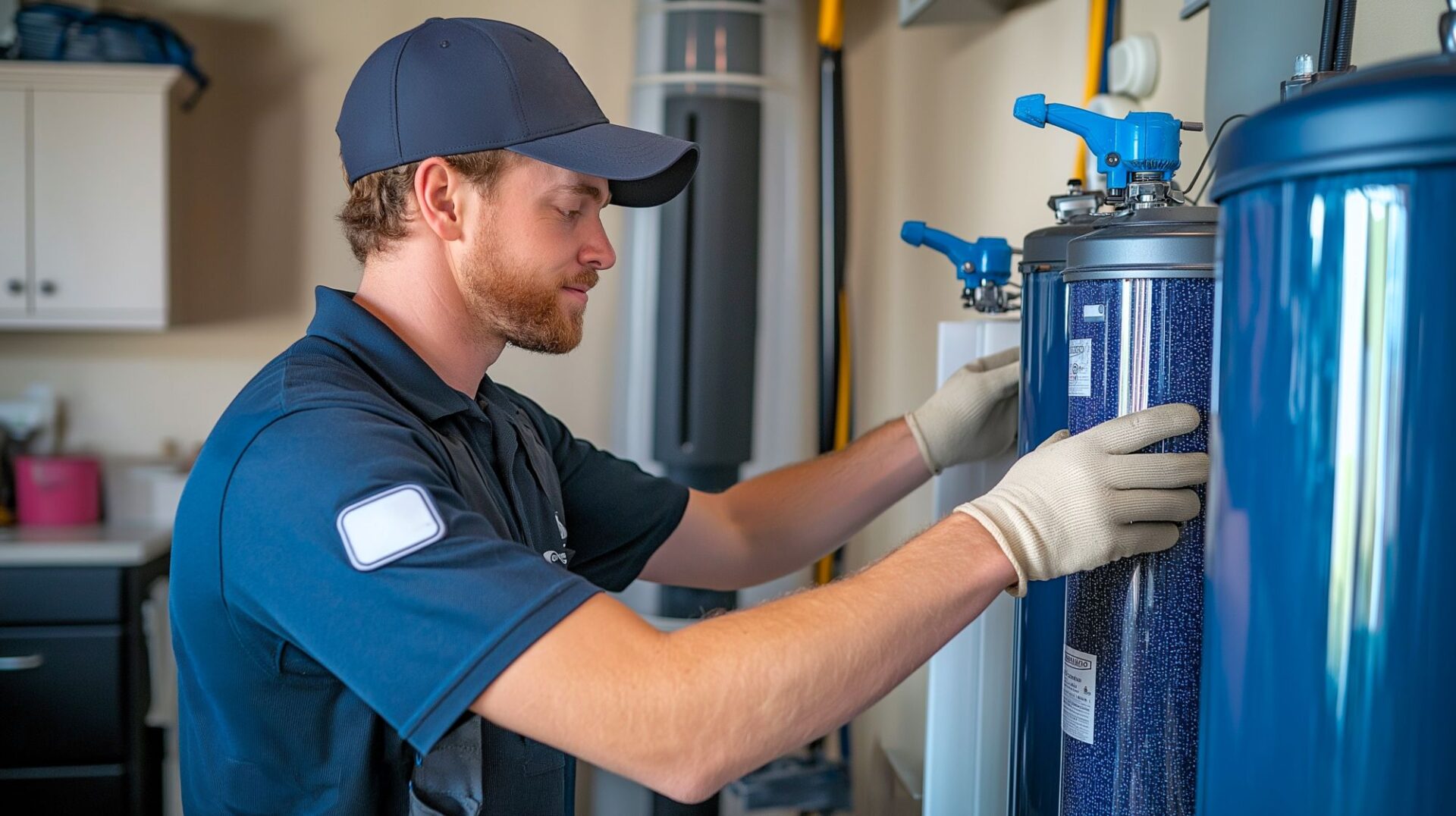
Plumbing Upgrades That Boost Your Utah Home’s Value
Plumbing Upgrades That Boost Your Utah Home’s Value We are in the time of year when people look around their homes and wonder what they
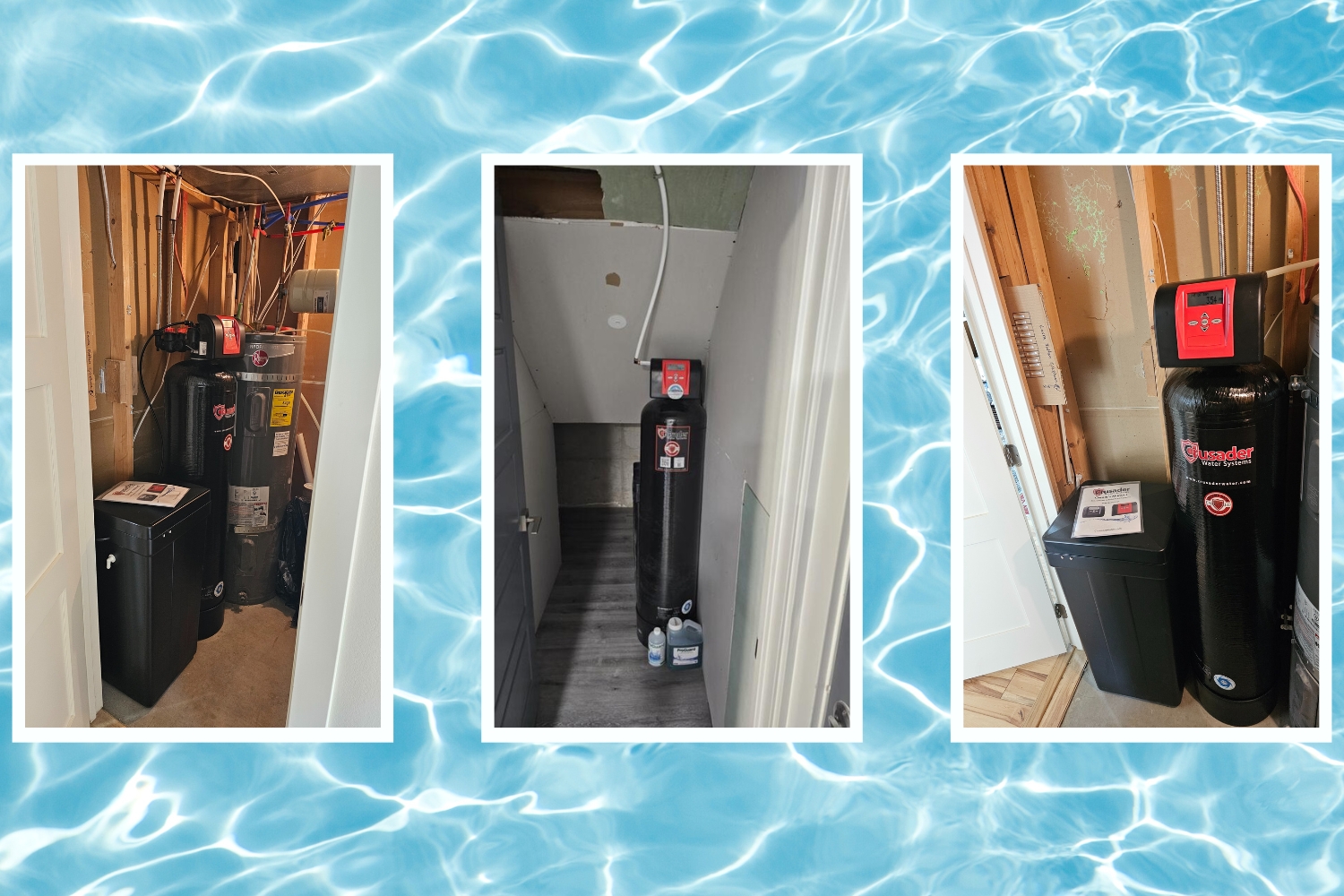
Many homes deal with hard water, a typical problem that is sometimes overlooked until it creates trouble. The high mineral content in hard water—mainly calcium and magnesium—may cause problems with plumbing, appliances, and even your skin and hair. The good news is that a water softener installation could solve some issues. But if you genuinely need one, how would you know? Many parts of Utah are known for its hard water minerals. Below are some signs that the water quality in your home or business could be increased by installing a water softener system.
White, chalky deposits around faucets, showerheads, and other plumbing fixtures indicate hard water in one of the most obvious ways. Known as “limescale,” this accumulation is directly linked to the minerals in hard water. This limescale can gradually clog faucets, lower water flow, and ruin appliances. If you continually wipe off mineral deposits, your water is likely hard and would benefit from a softener.
Your laundry can suffer greatly from hard water. Hard water is one reason your clothing comes out of the laundry feeling stiff and scratchy or appears dull. Hard water’s minerals might bond with the detergent, stopping it from completely dissolving and adequately washing your garments. This can leave soap residue behind, giving your clothes a rough and worn-out appearance. By removing these minerals, a water softener keeps your clothing softer and brighter and lets your detergent operate more powerfully.
Another obvious indication of hard water is how it affects hair and skin. Hard water could be the cause if your skin feels dry and irritated or your hair is dull and brittle following showering. Hard water’s minerals can strip away your skin and hair’s natural oils, drying and irritating them. A water softener will help your skin and hair regain moisture, improving their feel and condition.
Hard water can seriously compromise your plumbing system and influence the surfaces you view. The minerals in hard water can build up inside your pipes over time, lowering water flow and stressing your plumbing system. Frequent blockages, leaks, and even pipe corrosion—all of which might call for expensive repairs—can result from this. If you regularly phone a plumber to address pipe problems, consider a water softener to stop additional damage.
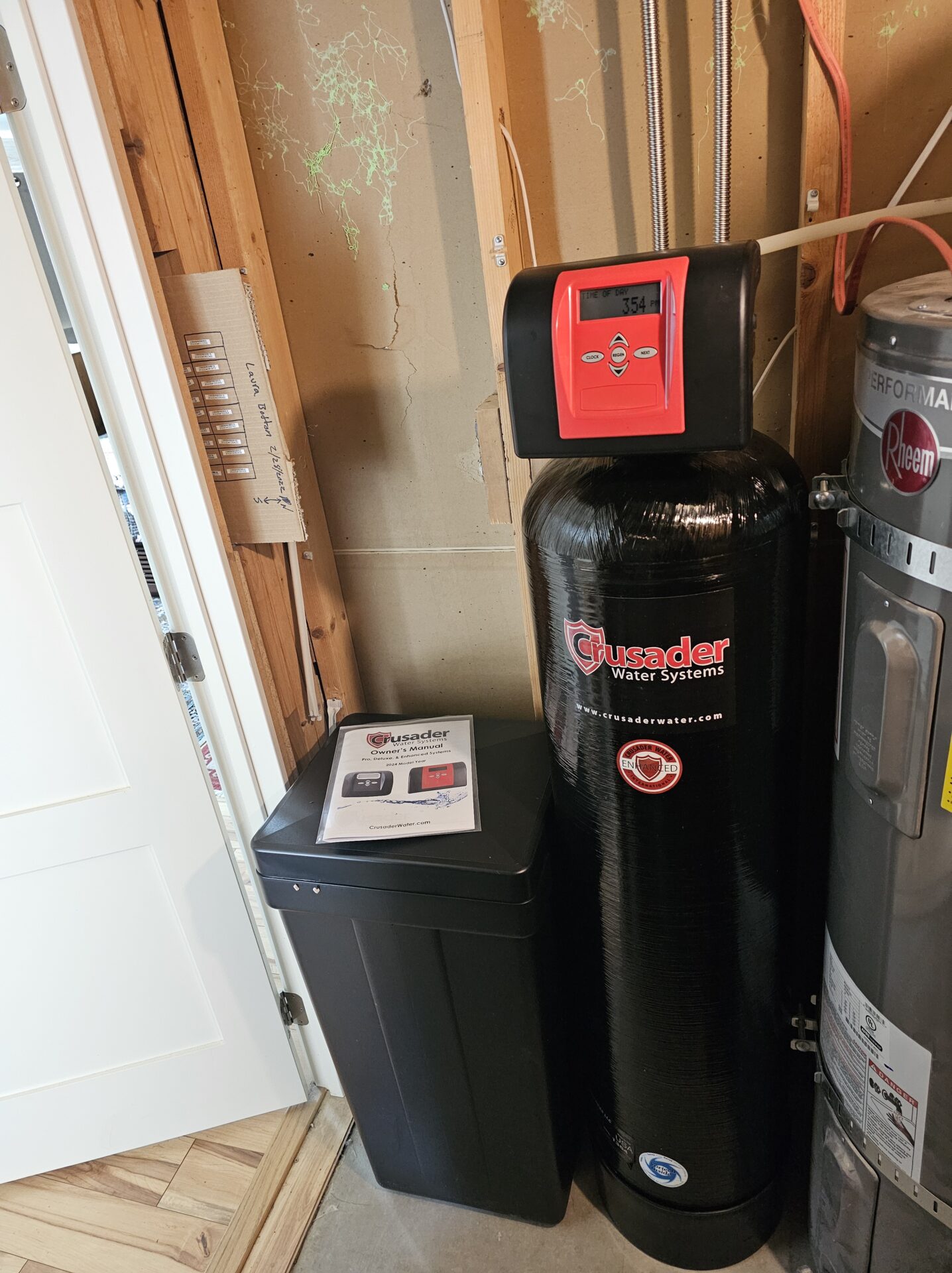
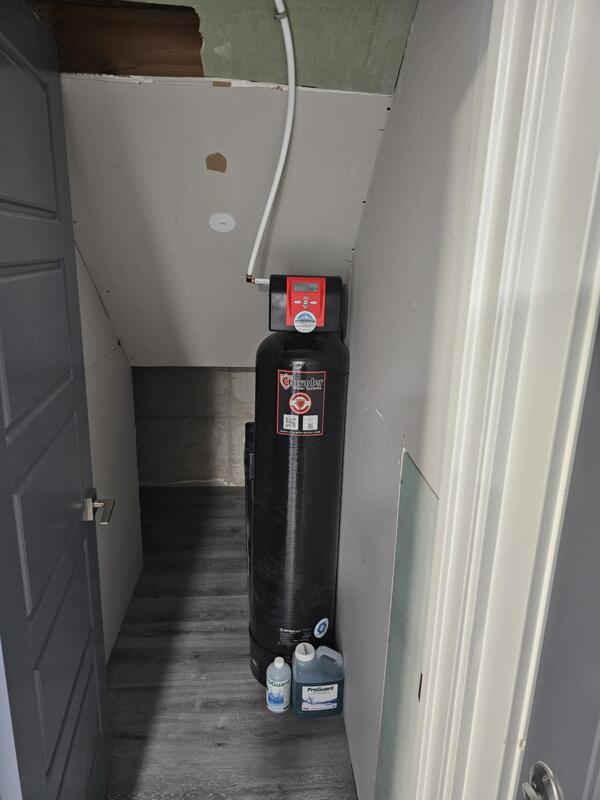
Hard water can reduce your water heater’s performance. Hard water minerals often gather within the tank and build a layer of silt at the bottom. This accumulation of silt drives your water heater to operate more aggressively in heating the water, raising your energy consumption. A water softener can assist in avoiding sediment accumulation and increase the efficiency of your water heater, saving you money over time if you have observed an increase in your water heating bills.
Hard water is probably why your dishes come out of the dishwasher looking streaky, spotty, or foggy. Hard water’s minerals often leave residue on your glasses, plates, and cutlery and don’t rinse away readily. This can negatively affect how your dishes look and feel; they may seem dirty even after washing. By removing the minerals aggravating this problem, a water softener will leave your dishes brilliantly clean.
Hard water mixes poorly with soap, which results in soap scum developing on your glass doors, tiles, and shower walls. Cleaning soap scum can be challenging and may call for regular scrubbing to eliminate it. If you are constantly fighting soap scum accumulation, your water is most definitely hard. Softening your water will help you significantly cut the soap scum in your bathroom, thereby facilitating much easier cleaning.
Should any of the symptoms above arise in your house, give installing a water softener some thought. A water softener can increase the comfort of your daily life, make your appliances run more effectively, and help extend your plumbing system’s lifetime. Eliminating the negative impacts of hard water helps a water softener safeguard your house and offers long-term maintenance and energy cost savings. Getting a water quality test from a local plumber will help you decide whether a water softener is the best fit for your house if you’re unsure whether hard water is a problem.
Early identification of these indicators helps you prevent possible damage and enjoy the advantages of softer, cleaner water. We are Plumbing Utah, serving all residents from Ogden to St. George. Give us a call at (801) 601-1298 to learn more about the benefits of removing minerals from your water today.
Call Today

Plumbing Upgrades That Boost Your Utah Home’s Value We are in the time of year when people look around their homes and wonder what they
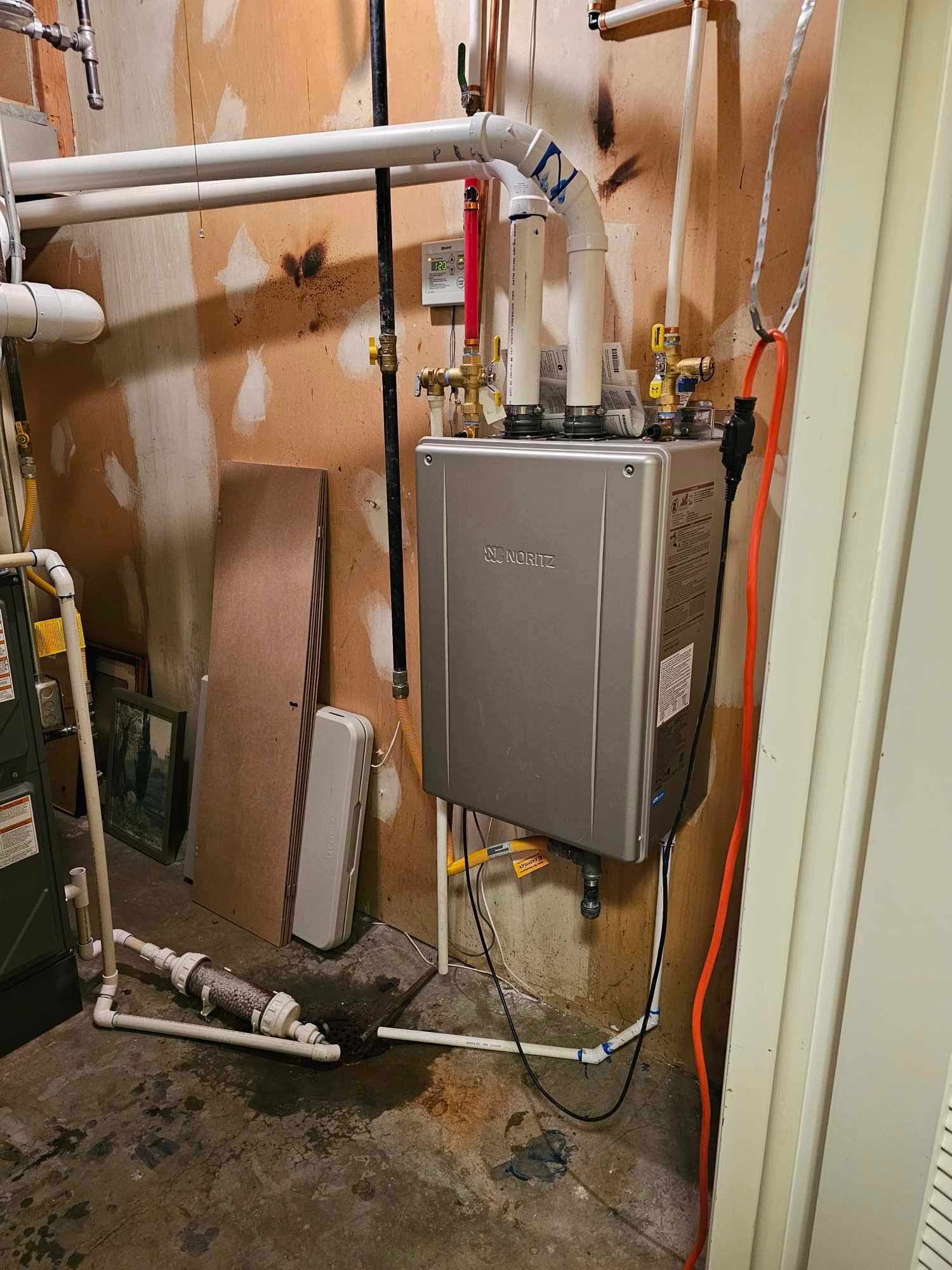
Ultimate Tankless Water Heater FAQ Tankless Temptation? Utah’s Plumbing Pros Answer Your Burning Questions. Tankless water heaters are revolutionizing how Utah homes and businesses experience
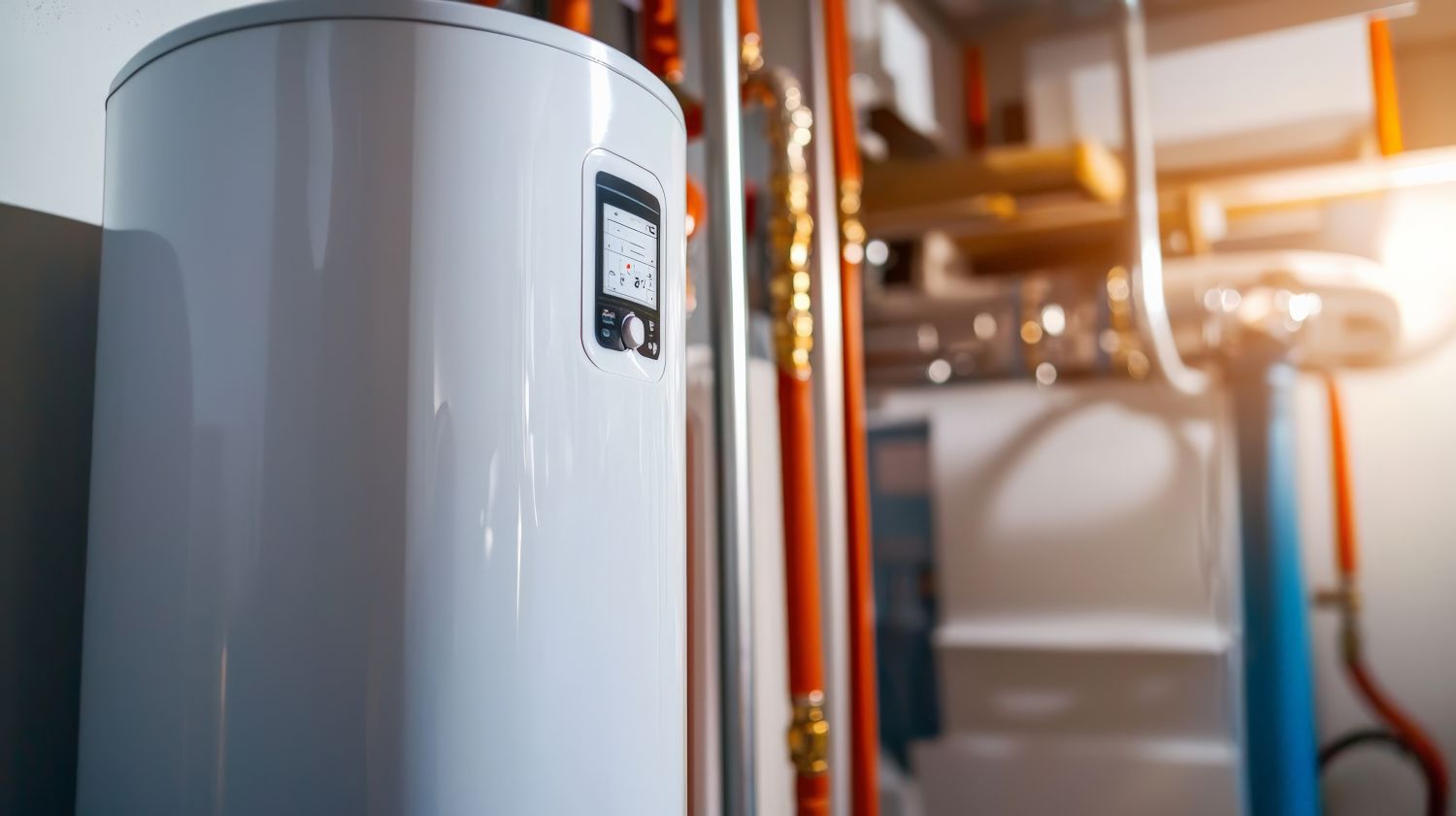
Does My Water Heater Run Harder in the Winter? When winter temperatures drop, the water heater in your house becomes one of the most critical
© Copyright Plumbing Utah | All Rights Reserved